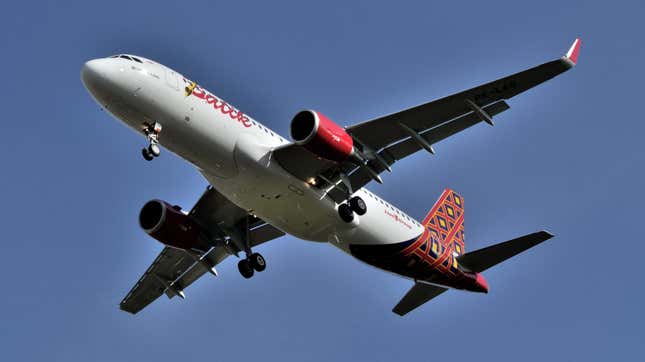
Two pilots for an Indonesian airline made a strong case for paid paternity leave after falling asleep in the cockpit for almost half an hour. The first officer allowed the captain to take a nap and then dosed off himself, later attributing his sleepiness to helping take care of his one-month-old twins at home. Batik Air Flight 6723, carrying 153 passengers, eventually landed safely at Soekarno–Hatta International Airport in Jakarta after both pilots woke up and realized the plane flew off-course. Both pilots have been grounded and the country’s transport ministry is now investigating the flight.
According to a preliminary report, air traffic control lost contact with the Batik Air Airbus A320 90 minutes into its flight while at a cruising altitude of 36,000 feet. ATC was able to track the plane using radar. The airliner covered 210 nautical miles (241 miles) in the 28 minutes that the pilots were out cold, just further than the distance between New York and Washington, D.C. The report stated:
“The [pilot-in-command] woke up and was aware that the aircraft was not in the correct flight path. The PIC then saw the [second-in-command] was sleeping and woke him up. About the same time, the PIC responded to the call from another pilot and Jakarta ACC. The PIC advised the Jakarta ACC that BTK6723 experienced radio communication problem and currently the problem has been resolved. The flight then continued and landed at Jakarta uneventfully.”
Yes, the pilots initially tried to hide the fact they fell asleep. It went unnoticed by the plane’s four flight attendants because the airline’s safety procedures only require cockpit checks every 30 minutes.
Airline pilots sleeping in the cockpit isn’t uncommon. ITA Airways had two pilots fall asleep in June 2022 during a transatlantic flight between Rome and New York, prompting the French Air Force to scramble fighter jets for a potential hijacking. According to the BBC, a 2013 survey conducted by the British Airline Pilots’ Association found 56 percent of pilots admitted to sleeping at the controls, and 29 percent of survey respondents woke up to the other pilot also asleep.

